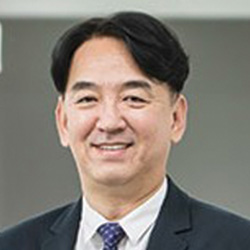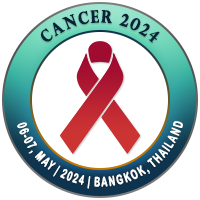
Weon-Kyoo You
ABL Bio , Republic of KoreaTitle: Antibody Therapeutics Targeting the DLL/Notch Signaling Pathway in Cancer: Challenges and Advances
Abstract
The
Delta-like-ligand (DLL)/Notch signaling pathway plays an important role in
maintaining cancer stemness and inducing tumor angiogenesis. Many different
modalities of DLL/Notch blockade have been developed and explored for cancer
treatment, including small-molecule compounds to inhibit gamma-secretase and
antibodies targeting Notch ligands or receptors. Despite promising anticancer
activity of these DLL/Notch inhibitors in preclinical studies, the overall
clinical outcomes have been insufficient to advance to the next stage of
clinical development primarily due to safety concerns or modest efficacy. To
overcome the narrow therapeutic window of DLL/Notch inhibitors, diverse
strategies for improving the balance between the safety and efficacy are
currently being explored. An antibody specifically targeting Notch ligands such
as DLL4 may offer a better approach to reduce concerns about toxicity derived
from broad-spectrum DLL or Notch blockers. In addition, combination therapy
with an angiogenesis inhibitor targeting vascular endothelial growth factor
(VEGF) could be a better option for increasing anticancer efficacy. Three
bispecific antibodies targeting DLL4 and VEGF, navicixizumab, dilpacimab, and
ABL001/CTX-009, were developed and are being evaluated for safety and efficacy
in late-stage clinical trials. Although no head-to-head comparative clinical
studies have been performed, the overall results of phase 1 clinical studies
have shown that all three bispecific antibodies have improved safety and
efficacy profiles compared with monospecific anti-DLL4 or anti-Notch receptor
antibodies and other gamma-secretase inhibitors. Emerging reports of clinical
trials suggest a bispecific antibody blocking the DLL4/Notch and VEGF/VEGFR
signaling pathways as a promising approach for effective anticancer treatment.
Biography
Weon-Kyoo You received his PhD majored in Biochemistry at Yonsei University in 2004. Then, he has worked as a postdoctoral fellow at UC San Francisco (2004-2009), and as a researcher at Sanford-Burnham Prebys Medical Discovery Institute (2009-2012). He successfully performed several research projects and published 36 peer-reviewed papers in the field of tumor-induced angiogenesis and tumor microenvironments. After he came back to Korea, he joined at the Hanwha Chemical, R&D center as a principal research scientist to discover and develop a novel bispecific antibody until 2016. Currently he is working as the R&D Head at ABL Bio, Inc. and is leading new antibody-based drug development programs from discovery to clinical developmental stages.

